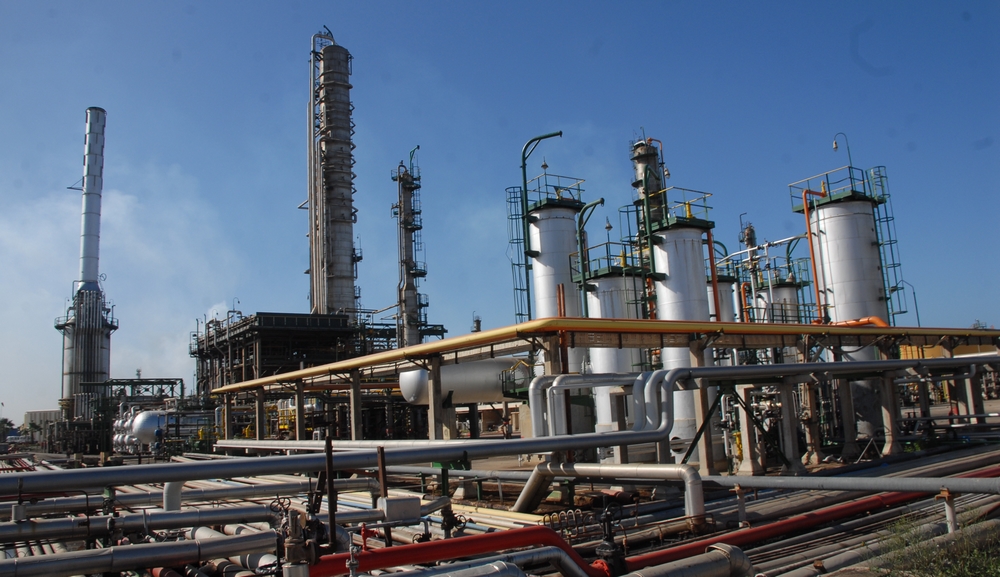The World Bank, represented by the International Centre for Settlement of Investment Disputes (ICSID), has ruled on the Samir case. The payment is set at $150 million for the Moroccan state, which will go to Sheikh Mohammed Hussein Al Amoudi and his Swedish holding company, Corral. Here’s a look back at three decades of litigation through five key dates.
On Monday, July 15, the International Centre for Settlement of Investment Disputes (ICSID) issued its ruling in Washington. It grants Corral Morocco Holding a settlement of $150 million for claims against the Moroccan state related to the Samir case. This compensation represents only 6% of the $2.7 billion that the holding company was seeking, citing unfair treatment such as the seizure of its bank accounts and the prohibition against oil tankers docking and unloading their cargo. Here’s a recap of the dispute in five key dates.
May 6, 1997: privatization under duress
« Société anonyme marocaine de l’industrie du raffinage » (Samir) was originally a state-owned enterprise established in 1959. It inaugurated Morocco’s first refinery in Mohammedia in 1961. The 1980s and 1990s were marked by recessions, leading the state to decide to privatize several of its companies. In 1995, a year that saw a dramatic drop in Morocco’s GDP (-5.41%), Samir was listed among privatizable Moroccan companies.

After a bidding process, Corral Petroleum Holding, owned by Saudi Sheikh Mohammed Hussein Al Amoudi, acquired Morocco’s only refinery for 4 billion dirhams. With this privatization, the Kingdom lost control over its hydrocarbons market. However, according to a source close to the case, Corral and the Moroccan government signed a contract whereby the Saudi company committed to make investments during the first five years: 1 billion dirhams to upgrade the Sidi Kacem refinery, and 5 to 6 billion dirhams in Mohammedia to establish a hydrocracking unit to convert crude oil into gasoline, kerosene, jet fuel, or diesel.
In return, the Moroccan state committed to protecting the market by applying customs duties on refined oil imports, along with a pricing coefficient to mitigate price fluctuations of around 6.5%.
November 25, 2002: all guns blazing
By 2002, the privatization of Samir was celebrating its five-year mark. At this point, it was evident that Sheikh Mohammed Hussein Al Amoudi and Corral Morocco Holding had not fulfilled their commitments. The group made no investments to modernize its production facilities. Meanwhile, former Minister of Privatization Abderrahmane Saïdi, who had taken over as the general manager of the refinery, was negotiating with the government to maintain the benefits granted to Samir in exchange for making those investments.
At the end of the year, disaster struck the Mohammedia site. On November 25, following heavy storms, the Oued El Maleh dam was breached, flooding the refinery completely. The refining units were abruptly shut down, and the hot units caused a fire due to the released hydrocarbons. The accident resulted in two deaths at the refinery and an estimated loss of 1.5 billion dirhams for Samir.

Facing a potential shortage, the government decided to suspend customs duties to allow distributors to import oil. Without customs barriers, imported oil was cheaper than locally refined oil.
March 21, 2016: descent into hell
2015 dealt a fatal blow to a declining Samir. On August 5, the refinery ceased production due to unpaid taxes and debts totaling about $4.5 billion. A few weeks later, majority shareholder Mohammed Hussein Al Amoudi proposed a debt repayment restructuring to the government, a proposal that neither Rabat nor the Casablanca Commercial Court accepted, which declared Samir liquidated on March 21, 2016, deeming it incapable of finding a viable solution to repay its debts. No serious buyer was identified by the judge.
Additionally, during the liquidation, management errors were identified, leading the Casablanca Commercial Court to extend the procedure to certain administrators. Consequently, their personal assets in Morocco were liquidated, and they faced a ban on their commercial capacity for five years.
Sheikh Mohammed Hussein Al Amoudi was implicated due to a 2004 investment agreement with the government that was reportedly not honored. Moreover, despite financial difficulties and debt, the board of directors chose to continue paying dividends to shareholders. To do so, the refiner took a short-term loan of $200 million from Standard Chartered Bank to repay debts to national banks, allowing it to distribute 94 million dirhams in dividends in 2013.
Finally, the liquidator pointed out that Corral Hotel Resort Company, owned by Sheikh Mohammed Hussein Al Amoudi, purchased the Samir Hotel Company (which owned the Amphitrite Beach Hotel Mohammedia) in 2006 for 66 million dirhams… which were never paid.
Following the liquidation, deprived of national access to refined hydrocarbons, and under its decompensation policy, the government decided to liberalize fuel prices. This decision greatly benefited distributors…
The then head of government, Abdelilah Benkirane, stated that Morocco should not have « privatized Samir, let alone sold it to a foreign entity. » He condemned: “This man (Mohammed Hussein Al Amoudi) blackmailed us,” referring to a letter in which he threatened to seize the ICSID, accusing the state of imposing « obstacles and unfair treatment regarding his investment. » Abdelilah Benkirane also expressed fears of « losing the expertise » acquired in this company.
March 14, 2018: the case is referred to ICSID
Two years later, Sheikh Mohammed Houssein Al Amoudi referred his case to ICSID on the basis of an investment protection treaty signed in 1990 by Sweden and Morocco. He accused Morocco of unfair treatment, such as the seizure of his bank accounts and the ban on oil tankers docking and unloading their cargo.
At this point, according to a TelQuel source who had access to the transmitted request, « if Amoudi can demonstrate that he has not received ‘fair and equitable treatment,’ Morocco may be condemned. There are other notions that can be raised, such as the taking of ‘measures equivalent to expropriation.’ In reality, he raised all possible grounds that could lead to a state condemnation. However, given his numerous failings, particularly unfulfilled promises, Morocco also has many arguments in its favor. » Luca G. Radicati Di Brozolo has been appointed to preside over the arbitral tribunal.
July 15, 2024: judgment day
It took a total of six years for ICSID, the World Bank’s international arbiter, to render its decision. Out of the 14 billion and then 27 billion dirhams claimed by Sheikh Mohammed Hussein Al Amoudi, “only” 1.5 billion were granted by the tribunal, which rejected most of Corral Morocco Holding’s claims. Although Luca G. Radicati Di Brozolo has not yet communicated the facts that motivated the decision, the Minister of Economy and Finance, Nadia Fettah, stated to MAP-Washington that Morocco is considering all possibilities, including an annulment appeal before ICSID.
Additionally, during this process before ICSID, Morocco highlighted the efforts it made for Samir, the significant resources it mobilized, and the steps taken by public authorities since 2002 to preserve and develop the refinery’s activity, which had never been able to recover financially under its main shareholder (Corral Morocco Holding).
Either party can file for annulment within 120 days following the decision.
Written by Mari Daniel Thézard, edited in English by Eric Nielson




